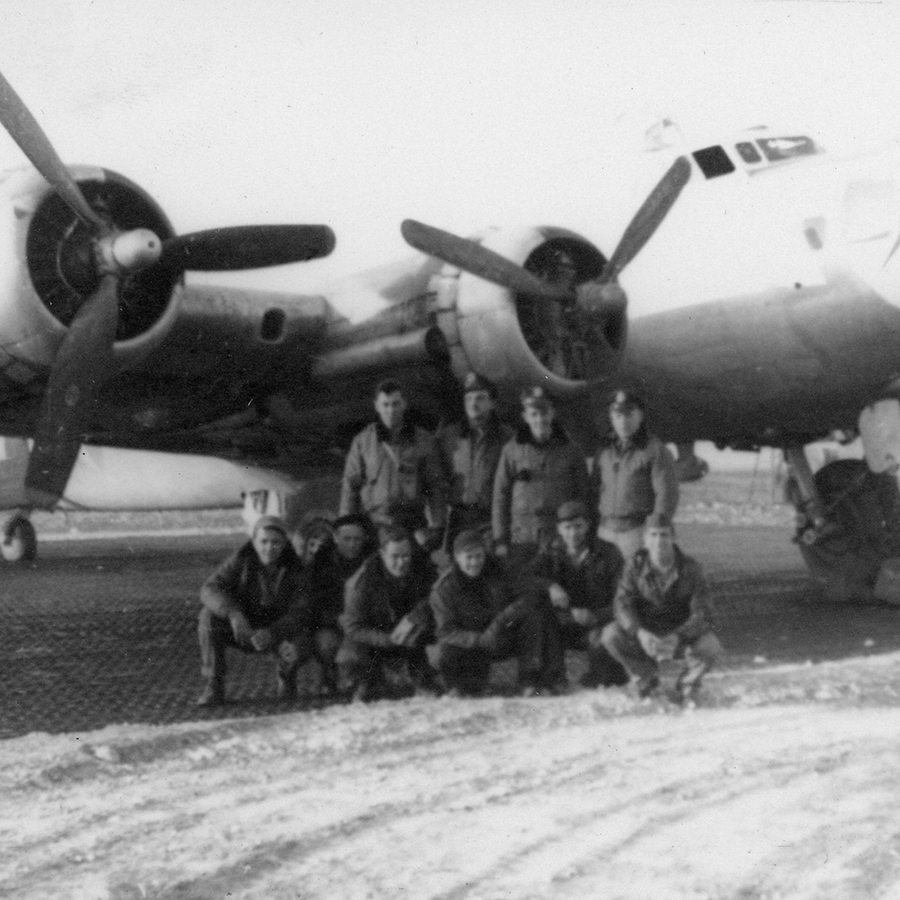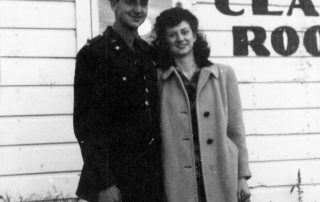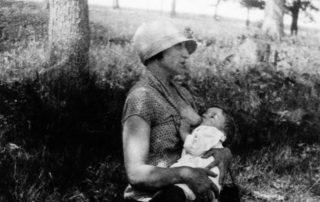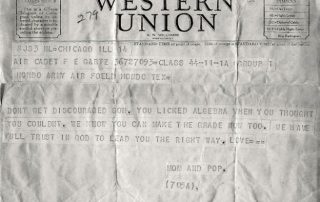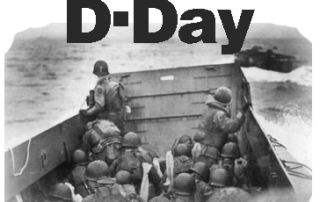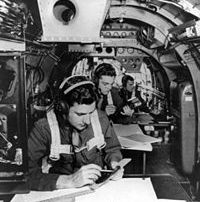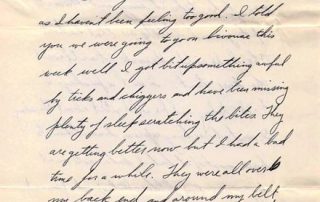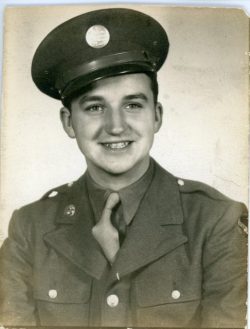
“Family Archaeologist” explores a century of family letters, diaries, and artifacts, and how they illuminate history and our shared humanity. To get an overview of the blog, click: “Welcome to Family Archaeologist”
LATEST BLOG POSTS
World War II navigator heads to air combat!
This post will summarize what happened to Ebner after he graduated from Navigation School in Hondo, Texas, in September 1944 and eventually was shipped overseas to put his intense training into navigating bombing missions to bring World War II to an end.
World War II Mom sends love and encouragement
Seventy-one years ago, World War II navigator-in-training, Frank Ebner Gartz, wrote to his mother about his hard work and some health trouble he was having, but I think primarily to reassure her he was all right and just too darn busy with school work to write. His mother's loving, prayerful response was written just four days later.
Before GPS—World War II navigation with sextant
This World War II navigator cadet sounds a lot more confident than a few weeks earlier when he felt he was failing—and worried about washing out. Discipline and tough courses were Frank's daily fare, keeping so busy he hardly has time to write. The Army Air Corps needed young men who were smart and able to stand up to stress.
Family rallies behind discouraged World War II navigation cadet
In Frank's last letter home, dated June 11th, he expressed fear about his course work. No matter how hard he studied, he was failing tests. He wrote: "I can't write letters or eat right now because...it's a constant threat to my existence." In World War II, the fear of "washing out" from the Air Corps, a common occurrence, and being sent to the infantry, plagued every young cadet.
World War II girl makes bomber carburetors; no boys to date!
World War II's "Rosie the Riveter" comes alive in this letter to Frank from a gal back in Chicago. She's working on a "beauty of a carburetor" for bombers. I doubt many girls before the war even knew what a carburetor was. The World War II woman became versed in previously male-only arcane knowledge. Another sign of the World War II years: no boys to date. Read on.
D-Day remembered by World War II air cadet in letter home
Seventy years ago today, June 6, 1944, the largest seaborne invasion in history took place: D-Day. About 6:30 a.m., 24,000 British, US, and Canadian airborne troops landed on the beaches of Normandy. Thousands of young men lost their lives there, and their sacrifice eventually helped the Allies win the war.
World War II navigator student worries about grades
Hondo students learn navigation 1944 (Maybe my uncle knew these guys!) Frank answers both my parents' letters from a few days earlier. His concerns about his coursework are increasing: he's now flunked two exams. Instead of "I'll be all right," as he wrote his parents, he now writes: "I'm going to make it—I think." The specter of "washing [...]
World War II bivouac results in misery: tick and chigger bites
Ticks and chiggers combine with a flunked test to make this twenty-year-old Air Corps Navigation student pretty miserable. I suffered from scores of chigger bites when visiting San Antonio when I was about Frank's age. I could not stop scratching for days and sleep was impossible from the itching madness. I totally empathize with what my uncle went through.

